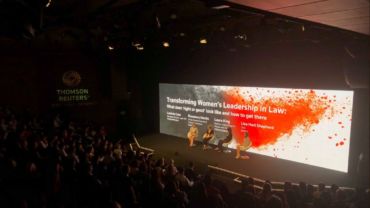Whether running their own practices or employed fee-earners, lawyers are undoubtedly highly intelligent, skilled individuals who know their stuff and care about what they do, often working long hours to satisfy their clients’ needs.
Like other professionals, they are not immune to the challenges which the business aspect of their work may pose and with the ever-changing legal landscape, this may be even more complicated for lawyers than other professionals.
Ever-increasing competition, much of which is a race to the bottom on price, the perceived threat of artificial intelligence and the Solicitor Regulation Authority’s recent changes around price transparency may be enough to unsettle even the most commercially-minded lawyer.
For those who are heart-led individuals, who work with clients who are going through particularly tough times—it’s doubly difficult. Having money conversations and managing clients’ expectations can be immensely challenging.
So even though a lawyer’s charge-out rate may well be set at the correct level, they may not apply it properly—automatically discounting and over-servicing clients because they just don’t have the heart to, as they see it, add insult to injury by billing the full fee.
So what is the impact of this?
Clearly there’s a financial impact on the firm’s bottom line, at times resulting in a significant loss of revenue year on year. However, that is only one part of the story. There is an equally important factor which cannot be overlooked and that is the well-being of lawyers themselves, since not charging and managing clients effectively often leads to them working excessively and quite understandably being very stressed, tired and even overwhelmed. Consequently, it may well be a contributing factor to the increase in mental health issues in the legal profession.
If we examine the problem of revenue either being written-off—in terms of discounting and lawyers over-servicing clients, it is, in fact, twofold. Firstly, lawyers are trained as lawyers, they are not trained in the art of conducting business, so how can they be expected to be experts at it? It is therefore reasonable to expect that some simply have a lack of knowledge of how to speak with clients about the business side of the work. Secondly, like any other human being, they have patterns of behaviour which are driven by their unconscious beliefs and their emotions, which, depending on their nature, may well lead to the aforementioned discounting and over-servicing of clients.
Academic ability, knowledge and even professional experience are one thing (well three actually). Being competent and confident in business is of course a completely different skill-set. Since most lawyers probably haven’t studied business, it’s hardly surprising or even fair to expect them to be good at it without adequate training; yet it’s vital to the firm’s success and the lawyers’ well-being.
It is important to emphasise that this problem cannot be solved by process alone. From discussions with Managing Partners, CEOs and Practice Managers, it is very clear that some are tearing their hair out, frustrated with the amount of revenue which is being unnecessarily lost, as they don’t know how to solve this conundrum.
Yet there is a solution, once the dilemma is genuinely understood.
Since the problem is two-fold, it goes without saying that the solution must equally be two-fold:
- Address the lack of knowledge.
- Address the lack of confidence which encompasses habitual behaviours.
Remember that a lack of confidence is emotional rather than rational. Human beings (and lawyers are human too of course) are complex, irrational and emotional.
This lack of confidence is usually what causes the all-too-frequent, unnecessary and often automatic discounting and over-servicing of clients.
Just one example is extreme people-pleasing behaviour with clients, even at partner level which is not uncommon not only with lawyers but other professionals too. It usually comes down to long-term limiting beliefs which drive them to consistently do work which is underpaid and work all hours of the day and night.
If not addressed, this may well be the slippery slope to overwhelm and result in mental health issues.
Another less extreme example and also quite common is that of one of my clients, who is a very experienced sole practitioner, employment lawyer and part-time judge. During coaching, he said:
“I used to be constantly hunting on the prairie looking for the next kill, regardless of its quality. I never really considered my value. I wish I had learnt this when I was 25 and at law school.”
A third familiar problem, particularly associated with employed fee-earners is that they do not understand their charge-out rate—looking at it from a very personal perspective, comparing it with their salary and think:
“I wouldn’t want to pay that!”
And it’s that very thought which causes the damage; they cannot help themselves and will discount their fees, just to make themselves feel better. That is normal human behaviour; to move away from pain.
Do you recognise yourself or some of your fee-earners in any of the above?
So what can be done about all of this?
Value is the key, the foundation, the heart of the problem and the solution! My own unique formula UV + CV + CD explains this as follows.
- UV = First of all, fee-earners must really understand their value at a deep level and then from that profound understanding always focus on the value of each piece of work that they do for a client, before thinking about what to charge.
This moves away from being price-focused and that price is the key factor in whether or not a client will buy—which is erroneous thinking and just attracts the wrong sort of clients—to value-focused.
While this may sound very simple, it is not necessarily easy, since one’s value is unconscious. In fact, the more experienced a fee-earner is, the more unconscious is their value.
Since it is human nature to take things for granted, then experienced professionals take what they do for granted and think it is easy. It isn’t of course but to them it is. I know that this is true for me too. This is a significant part of the problem and process training alone is unlikely to fix this.
- CV = Next comes learning how to communicate their value to clients confidently as well as being able to elicit the value perceived by the client.
In addition, they need to communicate with the client clearly throughout a project, right from the outset to conclusion of billing and payment on the following:
- Costs including changes to costs due to a variation in the scope of work.
- When the project will be complete and potential variations to the plan.
- Any other relevant information, so that the client’s expectations are being met and/or managed and therefore the likelihood of discounting is significantly reduced, if not completely eliminated.
- CD = Confident delivering costs to the client. If a lawyer is not confident talking about the money, it will come across that way and clients will pick up on it and are then likely to challenge the fees.
Sounds simple and yet many lawyers do not do this consistently well, which means they are in a weak position when it comes to billing. You might be asking “why don’t we adjust our approach”. I guess the answer to that is four-fold:
- it’s habitual;
- too busy;
- don’t know how; and / or,
- not confident
…bringing us full circle to the very beginning of this article.
In summary, the key to increasing revenue for your firm, without having to get more clients, do more work or compromise value or values is to ensure that you and your fee-earners are both competent and confident. Not only from the legal knowledge perspective—but also from the business standpoint by understanding your value, taking charge of your communication with clients and being able to confidently deliver your fees to clients.
This will undoubtedly have a significant, positive impact on your bottom-line not to mention yours and your fee-earners’ wellbeing.
 Vanessa Ugatti is the author of Amazon Best-Seller, “True Worth: How to Charge What You’re Worth and Get It” and helps lawyers to generate more revenue ethically without having to get more clients, do more work or compromise value or values and create a more beneficial work-life balance.
Vanessa Ugatti is the author of Amazon Best-Seller, “True Worth: How to Charge What You’re Worth and Get It” and helps lawyers to generate more revenue ethically without having to get more clients, do more work or compromise value or values and create a more beneficial work-life balance.



